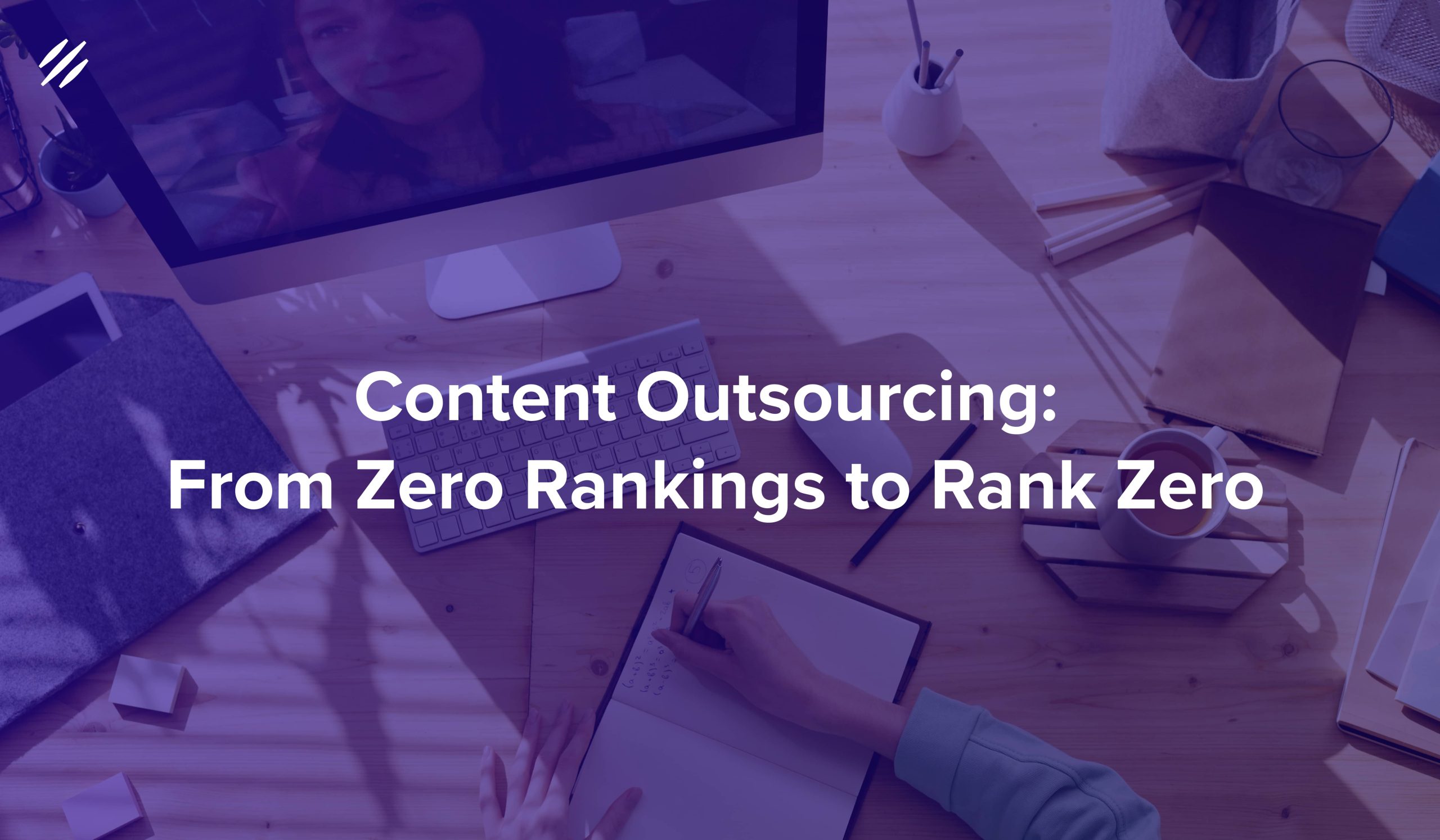Introduction
Artificial intelligence (AI) has taken the world by storm. The market is expected to grow by around 120% year-over-year, with at least 81% of businesses reporting that AI is a significant part of their company initiatives and plans – exhibiting a growth of roughly 270% in the past four years.
AI has not only become an investment opportunity but a tool used to improve efficiency and productivity in the workspace. So, where does ChatGPT fit in?
In the wake of copywriting tools and writing assistants, revolutionary up-and-comers AI bots like Jasper (previously Jarvis) and Surfer SEO seemed to have the market pegged. However, we all know that with innovation comes competition, and ChatGPT is certainly giving its counterparts a run for their money. But what is ChatGPT, and how can you be sure how effective it really is?
Before you drop your outsourcing budget on AI, let’s take a closer look at its inner workings and what we can expect from OpenAI’s ChatGPT.
What is ChatGPT?
ChatGPT is a language model or natural language processing (NLP) tool. Its primary function is to interact and respond to prompts as if conversing with the user. It is linked to a similar language model known as InstructGPT, derived from an earlier model known as GPT-3, which used a combination of human and machine-learning data. The new language model has surpassed its earlier versions and now understands better what the users are asking, allowing it can provide better responses to queries.
Sounds incredible, right? If used correctly, ChatGPT should be able to cut time and costs by increasing productivity and efficiency exponentially. But there are a few things to be considered before integrating ChatGPT in your day-to-day tasks, let alone attempting to replace your team of content creators with a bot, especially when outsourcing has or may become an integral part of your business functions. Here are some of the advantages and disadvantages of ChatGPT.
Pros and Cons of ChatGPT
As with any AI tool used today, ChatGPT’s capabilities have yet to advance to the point where it can be used as a standalone solution. There are both advantages and disadvantages associated with AI tools like ChatGPT. So, let’s delve a little deeper into how it can be both a positive and negative attribute.
Advantages of ChatGPT
1. It’s Convenient
ChatGPT is convenient in the sense that it can be used anywhere in the world as long as the user has an internet connection. It is also convenient because it cuts down on research time, which is very appealing to start-ups or small businesses as it reduces costs.
2. It’s “Personalised”
ChatGPT is somewhat personalised but not in its entirety. It can personalise its response based on the user’s level of understanding, making for a more customised experience. It can also admit to making mistakes if the response given is not relevant or accurate.
3. It’s Efficient
ChatGPT can help save time when it comes to research and finding answers to questions. It reduces research time significantly, which means that users should be able to push out more content in a shorter time frame.
Disadvantages of ChatGPT
1. It Lacks a Human Touch
Although ChatGPT can provide information in a chat format, it cannot give personalised information or chat in real-time with the user. It often uses verbose language in an effort to sound conversational or knowledgeable about the topic. It also lacks the ability to understand context or intent, sometimes resulting in unrelated responses. The response also lacks a human touch at times, which means that there is still a need for a person to review the work produced to fine-tune it and ensure that all information provided is accurate and sounds human.
2. It’s Dependent on Technology
ChatGPT, unfortunately, cannot work without technology, which means that it may be prone to experience technical challenges. For example, let’s say you’re outsourcing a team of content writers from a country like South Africa. It’s no secret that the country has been dealing with load shedding or staged power cuts for several years now, which has affected the economy and productivity of local businesses and freelancers. This means that your team of content creators or freelancers would not have access to this AI tool for at least 2 hours, causing a delay in productivity. At the same time, a content team or writer could easily continue to work offline and create content in the interim without using an AI bot like ChatGPT.
3. It’s Limited and Inaccurate
ChatGPT only has access to information it has been provided with. This means that it may not have access to the most recent data. Moreover, it may not always be able to understand the researched topic fully, and may, therefore, provide an inaccurate response or incorrect information. What’s more, because there are only so many responses available, this means that there may be other users with exactly the same results, which could lead to duplicate content at some point.
4. Plans To Be Watermarked
According to Search Engine Journal, there are plans for content created using ChatGPT to be watermarked, making it easy for readers to differentiate between AI generated content from ChatGPT and content created by a human. This is to prevent search results from flooding the search engine results pages (SERPs) or misuse. Google’s recent Helpful Content Update focuses on rewarding content created for humans rather than search engines, and content that provides valuable and useful insights for users. It, therefore, may be better advised to focus efforts on producing quality content by humans for humans who can navigate the balance between quality and engaging content.
5. Freelancers may put it forward as Authentic
In the world of outsourcing, it is fairly common to pay by the hours, and high quality content writing is known to time consuming task, with experienced writers spending a few hours on a blog. Freelancer writers and researchers now have the ability to generate blogs and reports in minutes with the help of ChatGPT, but are likely to put it forward as their own work and still charge for the hours it would have taken them in the past. This creates a situation where low-quality work are pushed out and companies will suffer consequences like negative impact on their website’s SEO.
Final Thoughts
Although ChatGPT has its advantages and can be used to speed up certain parts of the content creation process, it certainly cannot replace the abilities of a seasoned writer. In fact, it still depends on these abilities to refine its results, to check its accuracy and to add that human element that thousands of readers appreciate and helps build brand trust.
Now that we’ve touched on questions like “What is ChatGPT” as well as some of the pros and cons of ChatGPT, it is easy to see why replacing outsourced content with AI generated content can be a risky choice. If used completely on its own, you could run the risk of losing the trust of your readers and clients alike. And although it may be free at the moment, it won’t be forever.
So, why waste time and effort getting used to relying on AI tools like ChatGPT when you could invest that same energy into fostering a good relationship with an experienced writer or content creator who not only provides the expertise needed to do your brand vision justice but has the ability to comprehend search intent?




